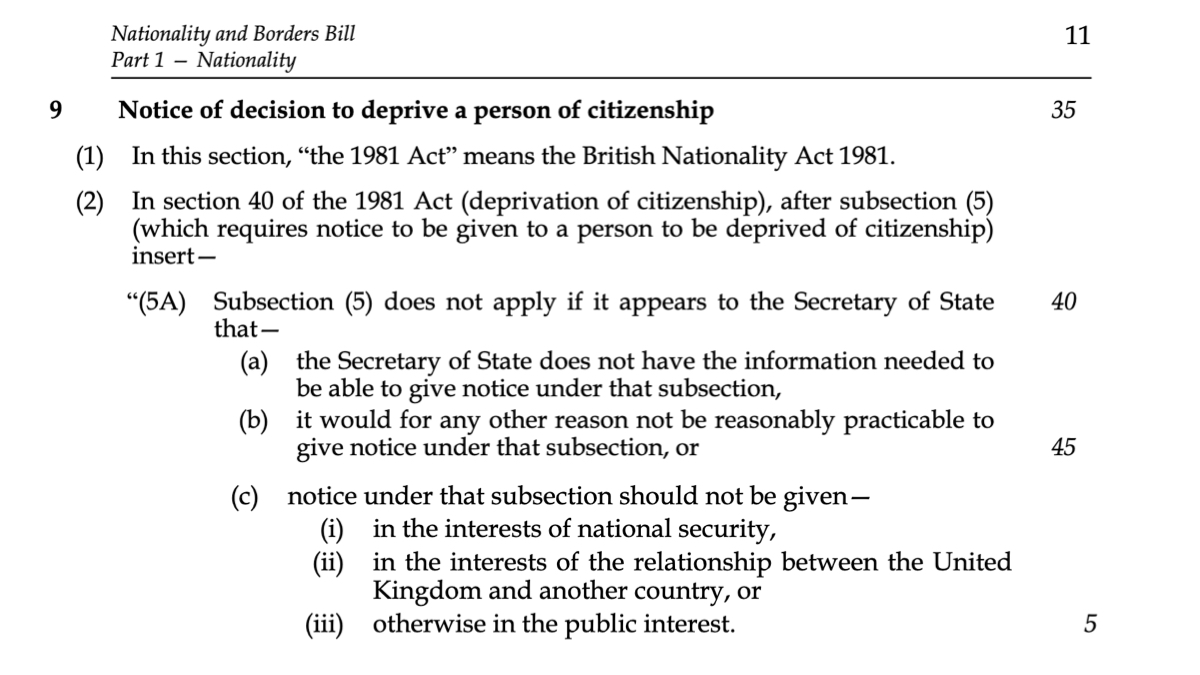
#ImpunityEntrenched 3
⚖️Ministerial Impunity & the rule of law
It’s not just specific bills that should worry us. This THREAD summarises what underlies them: attempts to evade scrutiny and accountability, while curbing the judiciary
Read the full piece⬇️
irr.org.uk/article/impuni…
⚖️Ministerial Impunity & the rule of law
It’s not just specific bills that should worry us. This THREAD summarises what underlies them: attempts to evade scrutiny and accountability, while curbing the judiciary
Read the full piece⬇️
irr.org.uk/article/impuni…
Part 3 looks at how government ministers are undermining the rule of law by:
⚖ Breaching UK & International law
🧑⚖️ Political interference in the judiciary
🕵️♂️ Treating journalists like spies
🔒 Constraints on public bodies
🗳 Voter suppression
irr.org.uk/article/impuni…
⚖ Breaching UK & International law
🧑⚖️ Political interference in the judiciary
🕵️♂️ Treating journalists like spies
🔒 Constraints on public bodies
🗳 Voter suppression
irr.org.uk/article/impuni…
In October, the Supreme Court ruled that the Home Office had acted unlawfully in imposing a prohibition on unpaid work on a migrant after a Tribunal judge had granted him bail to allow him to continue his voluntary work. @BIDdetention
biduk.org/articles/bid-w…
biduk.org/articles/bid-w…
The conduct of the Home Office in this case demonstrated the official contempt for the rule of law and for judicial decisions which informs government attempts to curtail the scope of judicial review and human rights law.
That month, Dominic Raab said he was devising a mechanism to ‘correct’ judicial decisions which ministers believed to be wrong.
Legal experts fear Raab wants carte blanche to reverse unwelcome judgments – something not even Henry VIII had the power to do.
independent.co.uk/news/uk/politi…
Legal experts fear Raab wants carte blanche to reverse unwelcome judgments – something not even Henry VIII had the power to do.
independent.co.uk/news/uk/politi…
Common features in the legislation going through parliament include ignoring and/ or unilaterally rewriting international obligations; and interference with judicial independence through minimum or mandatory sentences, statutory presumptions and ‘guidance’
irr.org.uk/article/impuni…
irr.org.uk/article/impuni…
The curtailment of judicial review is under way. According to @AmnestyUK, provisions in the Judicial Review & Courts Bill ‘attempt to limit...judicial discretion and tilt it towards an outcome that reduces consequences for the state when it acts unlawfully'bills.parliament.uk/publications/4… 

Attorney-general Suella Braverman used a speech to the @publiclawprojct to decry yet again judicial interference in ‘political’ matters, citing right-wing think tank Policy Exchange no fewer than nine times.
gov.uk/government/spe…
gov.uk/government/spe…
The Bills going through Parliament contain a number of clauses which tell judges what to do and how to apply the law, trespassing on judicial functions and judges’ independence.
irr.org.uk/article/impuni…
irr.org.uk/article/impuni…
The PCSC Bill, for example, provides minimum sentences which judges must impose for specified crimes, with any sentence below the minimum requiring rigorous justification.
irr.org.uk/article/impuni…
irr.org.uk/article/impuni…
And the Nationality and Borders Bill goes even further in this ‘political overreach’ or trespass, dictating to immigration judges that evidence provided late by asylum and trafficking claimants has ‘minimal weight’ and ‘damages credibility’
irr.org.uk/article/impuni…
irr.org.uk/article/impuni…
The expansion of political interference in the judiciary should be contextualised in the closure of 100s of courts, a huge backlog of cases & government attacks on the integrity of lawyers – particularly ones engaged in criminal defence or representing migrants or asylum seekers.
As if this was not enough, the government is planning to criminalise another pillar of democratic accountability: investigative journalism.
Its plans for legislation would put whistle-blowers and journalists on the same footing as spies. theguardian.com/commentisfree/…
Its plans for legislation would put whistle-blowers and journalists on the same footing as spies. theguardian.com/commentisfree/…
The other pillar of democracy is the electoral system. The Elections Bill passed in the commons this week requires voters to have photo-ID, allegedly to counter fraud. As we told @LeftFootFwd, it will suppress voting among poor, black & disaffected voters. leftfootforward.org/2022/01/race-e…
There are many more important legal developments explained in part 3 of #ImpunityEntrenched
Read the full analysis on our website
irr.org.uk/article/impuni…
Read the full analysis on our website
irr.org.uk/article/impuni…
• • •
Missing some Tweet in this thread? You can try to
force a refresh







